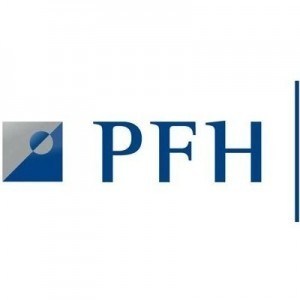Photos of university / #hwrberlin
The Master in Business Intelligence and Process Management at the Berlin School of Economics and Law (BSEL) is designed for graduates from Germany and abroad who have completed a career-oriented first degree (usually a Bachelor's degree) and would like to study for a postgraduate degree with an international group of students.
The emphasis is on information technology as an enabler for corporate value creation. The "Business Intelligence" stream stresses the growing importance of data for corporate decision making (this trend of larger and more complex data sets is called "Big Data"). The "Business Process Management" stream focuses on the organisational impacts of IT.
The programme prepares students for positions as business IT specialists, consultants, project managers, or executive managers in companies active in the international arena.
All courses are set up as interactive seminars and taught in English. Main teaching methods are case studies, project-oriented learning, and team-based learning. The small group size encourages direct dialogue and close contact between students and academic staff, facilitating intensive work and eye-opening discussions.
The emphasis is on information technology as an enabler for corporate value creation. The "Business Intelligence" stream stresses the growing importance of data for corporate decision making (this trend of larger and more complex data sets is called "Big Data"). The "Business Process Management" stream focuses on the organisational impacts of IT.
The programme prepares students for positions as business IT specialists, consultants, project managers, or executive managers in companies active in the international arena.
All courses are set up as interactive seminars and taught in English. Main teaching methods are case studies, project-oriented learning, and team-based learning. The small group size encourages direct dialogue and close contact between students and academic staff, facilitating intensive work and eye-opening discussions.
Educational organisation
The Master's programme is divided into three parts:The first semester builds upon previous Bachelor's studies, creates a common knowledge base, and starts developing areas of expertise and specialisation. First semester modules comprise foundational courses in business analytics, data warehouses, business IT strategy, and business process management. The first semester is worth a total of 30 credit points.
The modules in the second semester - also worth 30 credit points - take the topics of the first semester further. Students apply learned theories in projects of their choice (analytics lab & process lab) and gain advanced skills in analysing, designing, and implementing business information systems. In addition to projects, the second semester provides specialised modules in IT architectures for big data, IT security and IT privacy.
The third semester is scheduled for completing the degree by submitting a dissertation and defending it in an oral exam. During the third semester, a research methodology seminar is provided to support the work on the dissertation. The third semester is also worth a total of 30 credit points.
Students who have completed a Bachelor's degree with less than 210 ECTS (European Credit Transfer System) will be required to complete a placement in the third semester which is worth 30 ECTS. Students with a Bachelor's degree worth 210 ECTS who have already done supervised work experience during their undergraduate programme may, if they wish, take a voluntary placement in the third semester (i.e. before the thesis).
Internships
210 ECTS credit points are required for admission to the programme. Applicants with 180 ECTS credit points in their Bachelor's degree will be required to obtain the additional 30 ECTS credit points by completing a placement in the third semester. Students with a Bachelor's degree worth 210 credit points who have already done supervised work experience on their undergraduate programme may, if they wish, also take a placement in the third semester. In both cases the programme then lasts one semester longer (four semesters in total).Forms of assessment
All modules of the curriculum are assessed at the end of each semester, generally by a combined examination, combining for example a term paper, a presentation, a colloquium, an oral or written exam, or another method of examination (as determined by the lecturer). A final thesis must be submitted at the end of the programme. The final grade is an accumulation of the credits for modules, weighted by their relevance to the curriculum. All selected modules of the curriculum must be passed.The variety of testing methods at BSEL - written assignments, oral examinations, presentations, individual or group projects - takes into account the varying demands of the future occupational practice. It also supports the diversity of an international student group.
Course objectives
The Master's programme in Business Intelligence & Process Management provides applied knowledge at the crossroads between business and technology. The emphasis is on information and communication technology (ICT) as an enabler for corporate value creation. Students will acquire scientifically proven methods and practical skills for analysing complex situations, and for implementing sophisticated solutions. The scope of application ranges from strategic to operational scenarios, from private companies to public institutions.Language requirements
Applicants must prove a good working knowledge of English equivalent to level B2 (CEFR - Common European Framework of Reference).The required minimum score of some of the most known English certificates are listed below. We accept certificates of up to five years old. If you have studied a minimum of two semesters entirely in English, this can be accepted as equivalent (please provide proof with your application). You do not need to provide further English certificates if you hold a GMAT.
- TOEFL iBT - 87 points
- IELTS - 6.0 points
- BULATS - 60 points
- Cambridge - CAE
Academic requirements
- A first degree (Bachelor's or equivalent) in a subject in the career field (business informatics, business information systems, business administration with minor in IT, etc.)
- evidence of having completed undergraduate courses in
- business administration (10 credit points)
- quantitative methods/databases (10 credit points)
- (business) informatics (10 credit points)
- minimum of 210 ECTS credit points (Applicants with 180 credit points must acquire the additional 30 credits in an integrated internship after the first two semesters and before the end of their studies.)
- excellent English language skills equivalent to at least level B2 of the CEFR (Common European Framework of Reference)
- letter of motivation
- CV in English
Enrolment fees
Approx. 300 EUR (subject to change without notice) per semester cover fees for the student services organisation and student parliament groups as well as the cost of a semester ticket which allows students to use the Berlin Public Transport (BVG) for six months.Costs of living
The cost of living in Berlin is estimated at approx. 850 EUR per month. This includes rent in a student residence hall (private accommodation costs from 300 to 500 EUR per month), living expenses, health insurance, books and material, and incidental expenses.Job opportunities
There are many job opportunities for students in Berlin.Non-EU students are permitted to work within specified limits.









